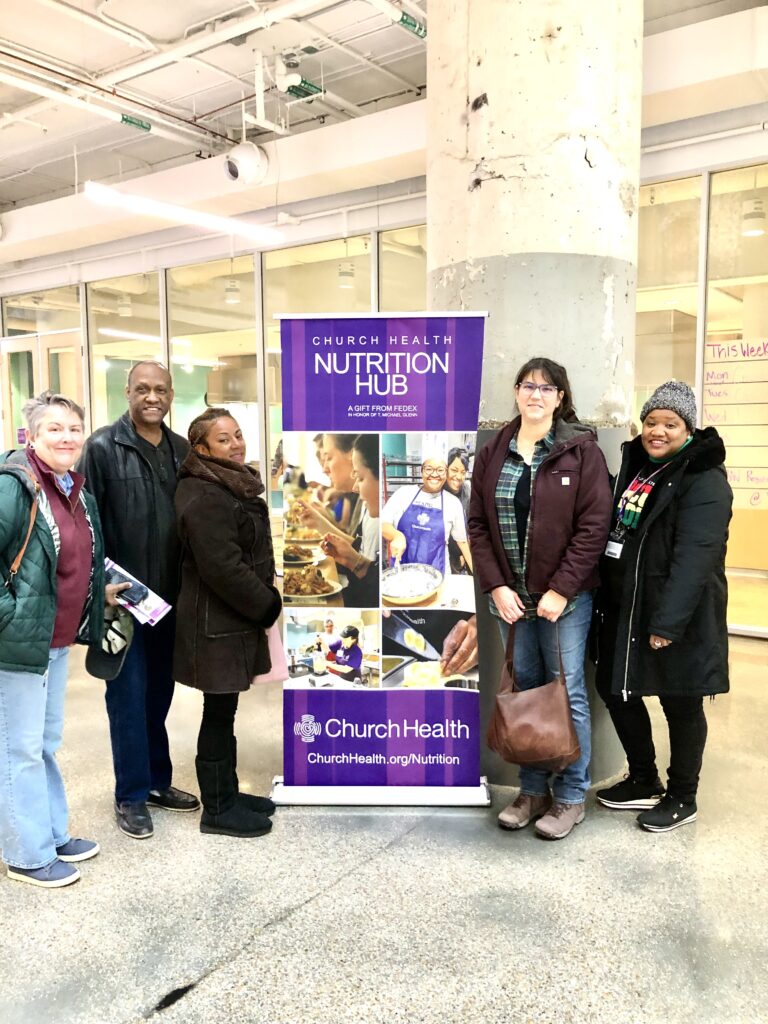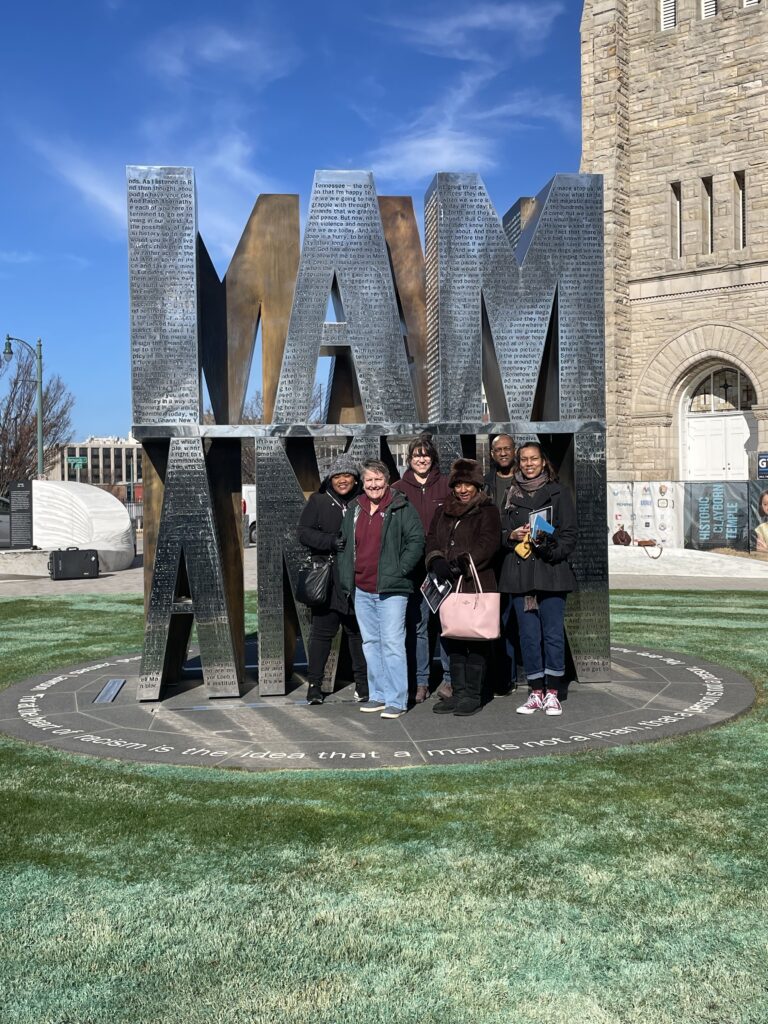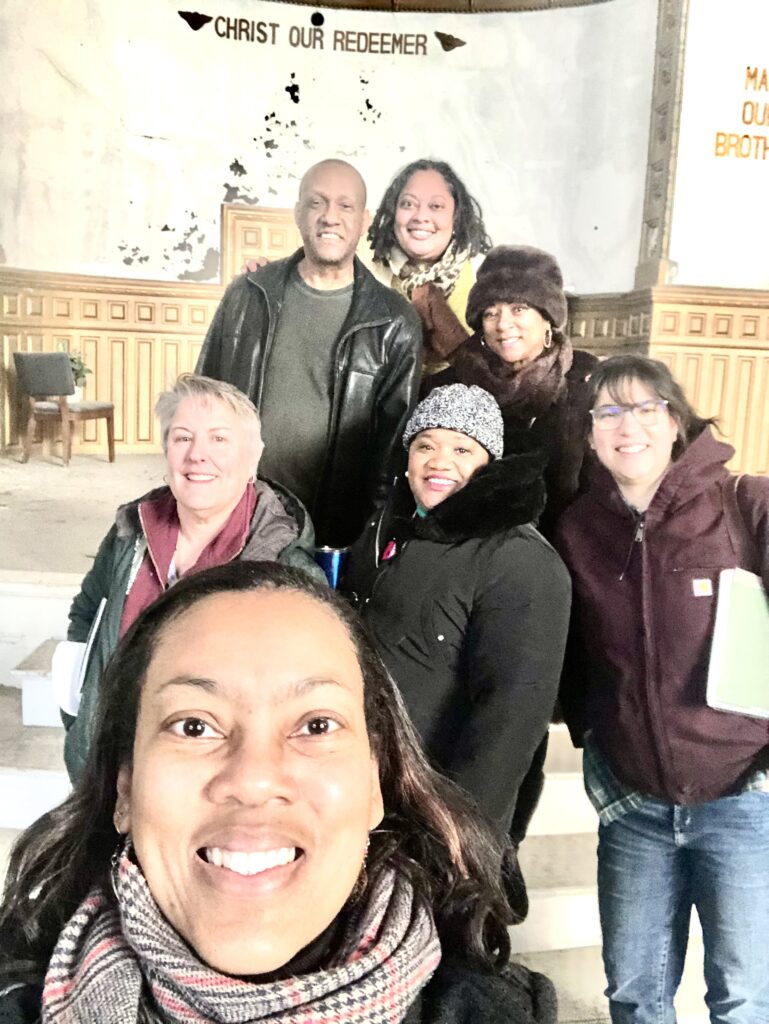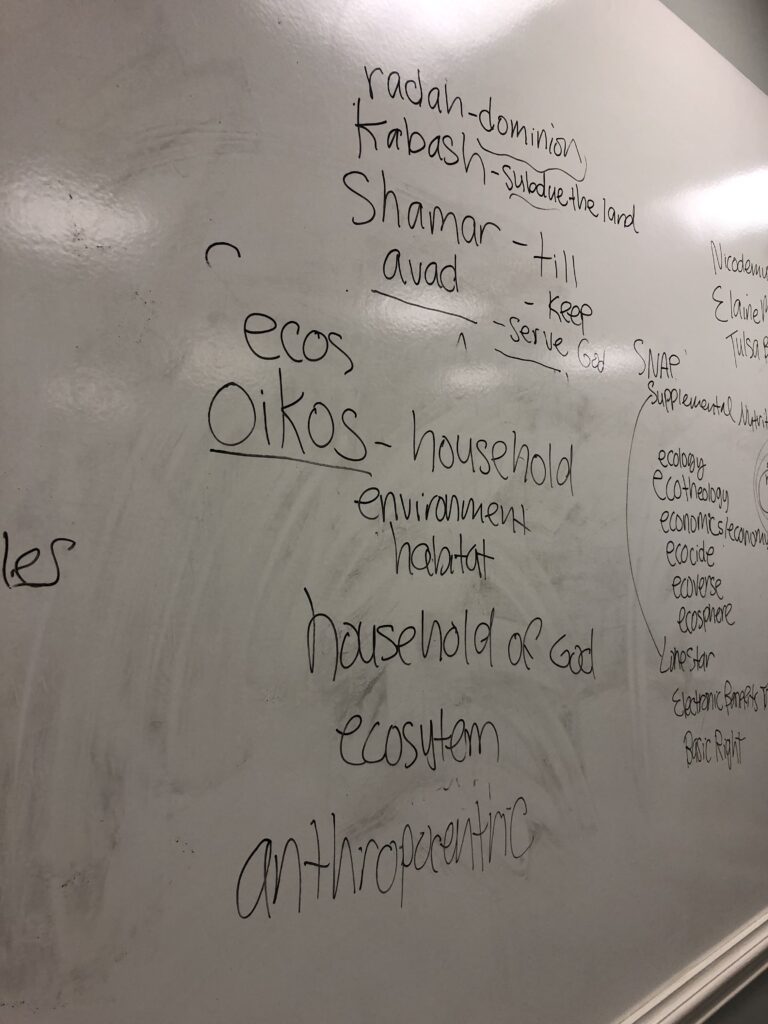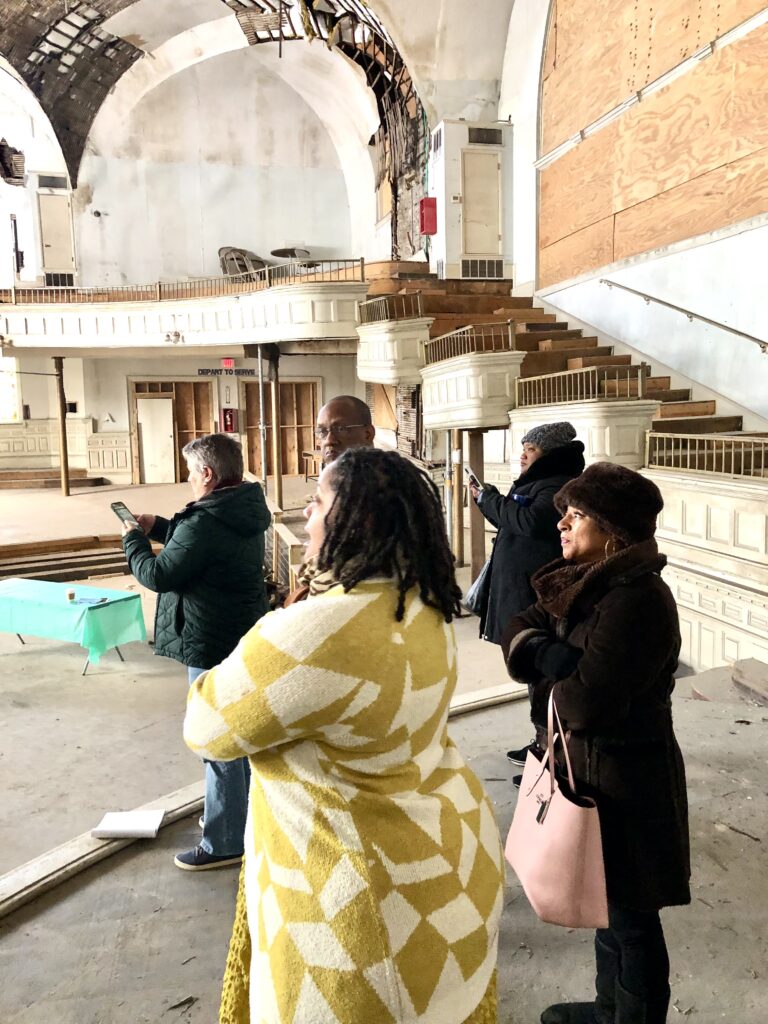From Student to Adjunct Professor: A Full Circle Moment
by Rev. Dr. Yvette R. Blair-Lavallais (DMin, ’22)
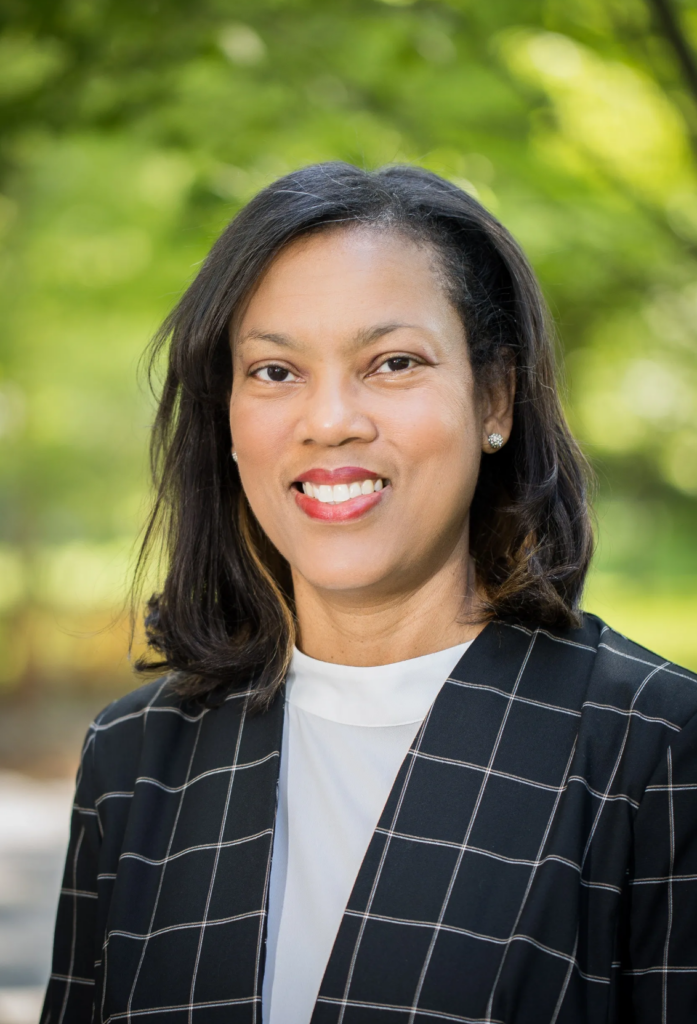
When I arrived on campus, January 8, 2024, and stepped out of the car, the first person to greet me was President Jody Hill. When he smilingly said, “Hello Professor,” it was a full circle moment for me. I was here for a week, not as a doctoral student in the inaugural Land, Food and Faith Formation cohort, but as an adjunct professor teaching students in the program following my graduation in 2022. That morning we worshipped together with other students, faculty, and staff, before making our way to Cumberland Hall where I had the honor of teaching DM50002, “Theologies of the Land,” to the third LFF cohort.
Here’s a snapshot into our week together for the intensive residency:
Our prevailing question was: how do we become ecclesial disruptors of land injustice? We explored land as the body of God, water as our relative, ancestral practices of agriculture in the BIPOC community through a womanist lens, and examined the horrors of legalized land loss/theft in this country dating back to 1617 at the hands of the church. Since we were in Memphis leading up to the MLK Holiday, we went on a learning journey at the Historic Clayborn Temple, the site of the 1968 Sanitation Workers Strike, that brought Dr. King to Memphis one last time. We looked at the layers of injustices that the Black sanitation workers faced, including environmental racism, and applied an ecotheological lens to it just as King did. After discussing it over lunch at The Global Café at Crosstown Concourse, we explored the US Farm Bill and land iconography in songs (This Land is Your Land, This Land is My Land), and reimagined a sacrality of land that is inclusive of all God’s people.
The experience was humbling for me. As a student, never did I imagine that I would one day return to the seminary – the very place where I learned so much – to teach. The freedom given to me to create my own syllabus, to introduce six students to theologies of the land through an ecowomanist lens, to assign readings and papers that center the voices of the Black Indigenous People of Color (BIPOC) community in the narrative around ecological justice, is a testament that MTS trusts me with this assignment. I am truly grateful and honored to do something beyond myself and to make meaningful impact in this way.
